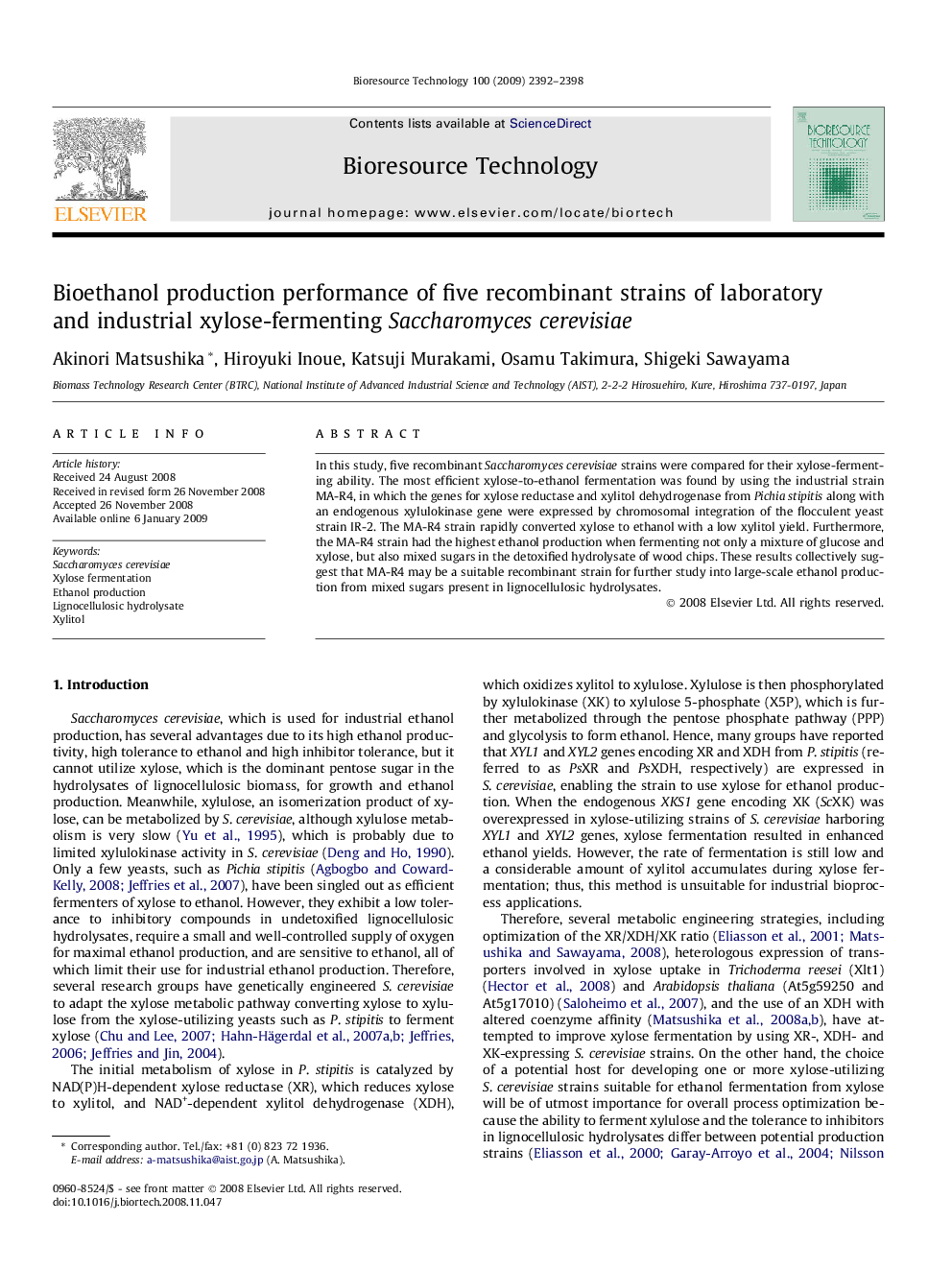| Article ID | Journal | Published Year | Pages | File Type |
|---|---|---|---|---|
| 683815 | Bioresource Technology | 2009 | 7 Pages |
In this study, five recombinant Saccharomyces cerevisiae strains were compared for their xylose-fermenting ability. The most efficient xylose-to-ethanol fermentation was found by using the industrial strain MA-R4, in which the genes for xylose reductase and xylitol dehydrogenase from Pichia stipitis along with an endogenous xylulokinase gene were expressed by chromosomal integration of the flocculent yeast strain IR-2. The MA-R4 strain rapidly converted xylose to ethanol with a low xylitol yield. Furthermore, the MA-R4 strain had the highest ethanol production when fermenting not only a mixture of glucose and xylose, but also mixed sugars in the detoxified hydrolysate of wood chips. These results collectively suggest that MA-R4 may be a suitable recombinant strain for further study into large-scale ethanol production from mixed sugars present in lignocellulosic hydrolysates.
